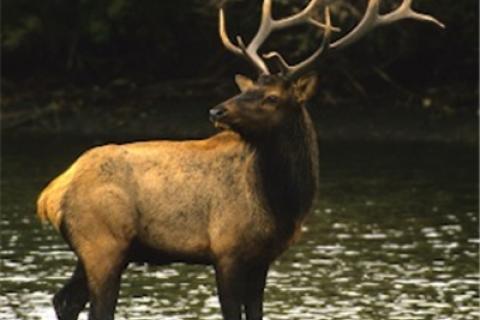
 If you are a first-time elk hunter, follow these guidelines carefully to have a successful hunt.
If you are a first-time elk hunter, follow these guidelines carefully to have a successful hunt.
Plan Ahead for Your Elk Hunt
This is not to be taken lightly.
Health is first and foremost: Get in physical shape and try some hunter specific workouts, pack plenty of water for the trip and beware of altitude sickness.
Recognize that Bass Pro will not be a 20-minute drive from elk camp, so you need to have everything with you might want or need. I generally pack the weekend before the hunt. I first make my entire list and lay everything out by the list, prior to packing. Then as I pack I check it off my list. Remember all you have invested, take the extra time, and don’t leave it to chance.
Prepare for the Worst
From the moment I leave the truck, I wear my emergency fanny pack just in case there is a survival situation.
One time, my hunting party was camping four hours back into a wilderness area. When we arrived back at camp one evening after hunting, we had a man greeting us in the dark. After talking to him for a moment, he told us he was completely lost. He had nothing: no food, water, matches, emergency sleeping bag, flashlight, water tablets or compass. So this is the short list of what I carry all the time, along with a whistle and hand flares. It all weighs less than a pound, but can be a life saver.
What if that guy had not found our camp, or it had rained, or the temperature had plummeted? He would have been in dangerous trouble.
Educate Yourself on Calling Elk
Calling elk is probably my favorite part in hunting elk.
These huge animals can — and do — verbally interact with us. It is up to you to know what you are saying and meaning, and to recognize what the elk are saying in their response.
Just making noise will absolutely not cut it. To me, it is an adrenaline-packed strategy game that can leave me flying high in the clouds, or leave me completely down in the dumps.
There are two basic elk calling strategies:
1) bugling and other bull-related calls and
2) cow calling.
I use bugling 80 percent of the time just as a locator call. I call strategically when the weather is good, when I see hot sign or when the area is prime with food, water or cover. If the area is void of elk sign or necessities, I will usually not call and keep moving.
There are times when you can bugle in a bull. However, it is usually easier to call in a bull once you have closed the distance with cow calling. I mean, the cow is the ultimate prize for a bull. So give him what he wants. The worst thing anyone can do is calling too much. Animals are just not near as vocal as humans.
- 7807 views

